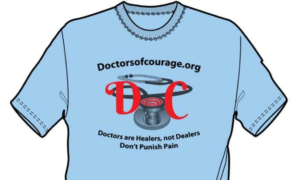In a system where healthcare has increasingly turned into a commodity, EviCore, the company responsible for the insurance denials of millions of Americans, has become the shadow player of corporate health. EviCore operates under the umbrella of Cigna but works with many of America’s largest insurers, handling prior authorizations for over 100 million Americans. Yet, its mission seems twisted, a modern-day “Project Mayhem” where profits reign, and patient well-being is merely a backdrop. It’s healthcare meets Fight Club, where the first rule is profit, and the last is patient care.
At the heart of EviCore’s operation is “The Dial,” an algorithm designed not just to process but to deny. Adjustments to this algorithm effectively decide the fate of thousands of prior authorizations daily, subtly tweaking the chances of approval or rejection. Need that MRI? Too bad. A doctor can spend hours filling out forms, submitting tests, pleading a case and still, the dial may swing toward denial. Each rejection becomes a small victory for EviCore, which can ramp up savings and show insurers a shiny balance sheet.
Consider a scene from Fight Club, where a narrator contemplates the brutal, callous calculations of risk assessments. EviCore’s system resembles this: a series of cold, mechanical decisions that disregard human suffering for the sake of profits. According to internal reports, EviCore has even claimed it can deliver a 3-to-1 return on investment for insurers by reducing medical spending. Like dialing for dollars, EviCore’s system is fine-tuned to reject whenever it needs to, framing every denial as a safeguard against “unnecessary” care. But in reality, it’s the vulnerable who pay.
It’s no secret that EviCore has made “denial” its default setting. In certain contracts, its profit directly correlates with how deeply it can slash insurance spending. The company’s bold promise of a 3-to-1 return on investment reveals a staggering truth, the more it rejects, the better it performs. Insurers love it because it saves them billions, while EviCore profits by navigating a delicate dance around ethical concerns and patient care.
Former employees described how EviCore controls the process. The “risk contracts” they employ let EviCore keep a share of any “savings” it achieves by denying care. Think about that. EviCore’s profit rises when it rejects procedures. Even if a doctor’s request is sound, the algorithm pushes for denial, leaving the patient stranded, sometimes in life-threatening conditions. “Evil Core,” as critics call it, has little incentive to treat patients fairly because its contracts depend on suppressing healthcare costs, not on delivering quality.
EviCore’s methods echo the facelessness of Fight Club’s narrator, or maybe even the existential drift of Mr. Nobody himself. Patients become abstractions, numbers filtered through guidelines that often don’t fit their cases. Take the experience of a man named John Cupp, a welder from Ohio, whose heart procedure was denied by EviCore twice, even after his doctor insisted it was essential. His heart issues went untreated, and Cupp eventually died from cardiac arrest, only then did the system release its grip. These are real people, relegated to paper, much like the anonymous nameless patients in insurance databases. Cupp’s daughter was left to grapple with the grief and absurdity of his untimely death. Who was ultimately accountable? EviCore, the insurance company, or the broken system itself? Perhaps all of them.
In yet another unsettling twist, EviCore is known to scare doctors into requesting fewer procedures. This “Sentinel Effect” is EviCore’s invisible footprint on medicine. Once physicians know they’ll face extra scrutiny, they simply stop asking, abandoning treatments they believe will be denied. What could be called healthcare’s Big Brother effect, where doctors censor themselves, is labeled as a benefit by EviCore’s representatives. The “sentinel effect,” they claim, helps doctors by promoting “best practices,” but the result is simple, patients lose access to care.
Much like Fight Club’s revolt against the mundane but sinister forces of modern life, this policing of healthcare is a surreal display of power. Patients are caught in the system’s chokehold, denied essential treatments, while their voices are drowned by the algorithms and policies designed to silence dissent. EviCore has turned its methods of denial into an art form, a finely tuned system that deprives millions of adequate healthcare. It’s no wonder it’s been dubbed “Evil Core”, a dark satire of its name but tragically real in its consequences. As insurance companies continue to offload their decisions to this monolithic intermediary, patients remain in the crossfire, casualties in a battle for profits.
The essence of EviCore is rooted in its very structure, it is a profit-maximizing machine, beholden not to patients but to insurers. Like Tyler Durden’s Fight Club call to tear down the structures of consumerism, perhaps it’s time we demand the same of healthcare middlemen. Because until that system changes, the dial will keep turning, and we’ll continue watching from the sidelines as lives are stamped “not medically necessary.”
The Author received an honorable discharge from the U.S. Navy where he utilized regional anesthesia and pain management to treat soldiers injured in combat at Walter Reed Hospital. The Author is passionate about medical research and biotechnological innovation in the fields of 3D printing, tissue engineering and regenerative medicine.

